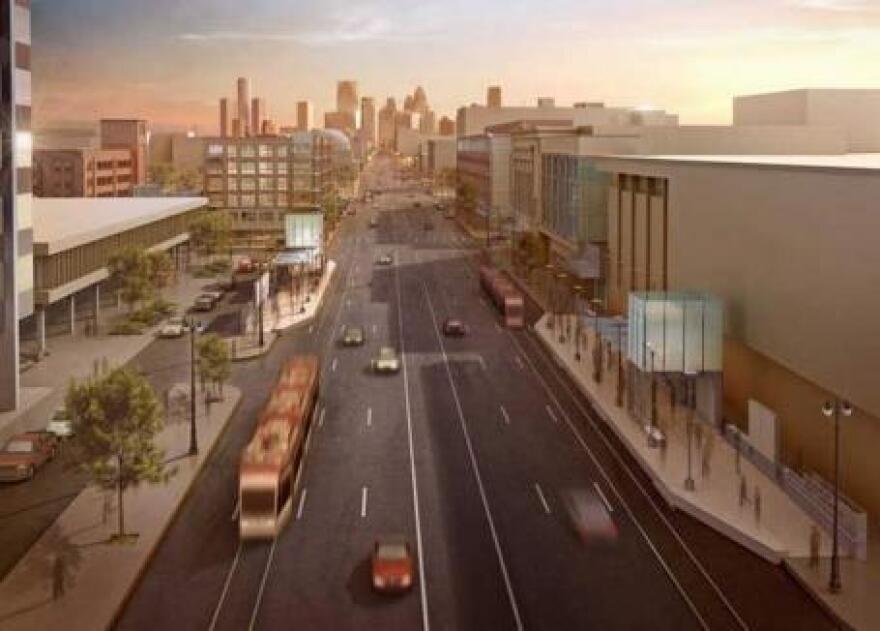Leaders of a light passenger rail line project being constructed in Detroit are looking for another $12 million from the federal government. If they don’t get it, the project may have to be scaled back or redesigned, or they may have to spend money that’s set aside for operating the line once it’s up and running.
The Detroit News uncovered the plea for more federal funds in a letter from a handful of Michigan congressmen and Senators Debbie Stabenow and Carl Levin.
Officials from Levin and Stabenow's offices forwarded Michigan Radio a copy of the letter, but declined requests for comment.
In it, elected leaders say without the $12 million grant "this important project will be delayed indefinitely, and we fear the resulting costs could make the project unaffordable."
But Matthew Cullen, President and CEO of the project disputed that claim in a written statement:
News reports published today suggested our project is in jeopardy. It is not. The construction of the M-1 RAIL streetcar will proceed as planned and commence upon City Council approval of our operating agreement. We hope for approval next week. We remain very optimistic about the requested TIGER grant based on the quality of our application, the strong support of the Mayor, our congressional delegation and others, the Administration’s focus and commitment to the City of Detroit, and the profound impact of this project for our community. That being said, the TIGER grant is just one component of our funding structure; there are contingency strategies that we will deploy if the grant is not approved.
The $140 million project already got a federal grant worth $25 million.
Officials hope to break ground on the rail line next month. It was set to start running late next year, but the line’s CEO told the Detroit News that late 2016 is more likely.
Representatives with the rail line say they plan to issue a written statement on the news this afternoon.

Once complete, the line will stretch a little over three miles of Woodward Avenue, from the northern end of Detroit to downtown. A non-profit entity backed by public and private donors is funding the so-called M-1 line.








